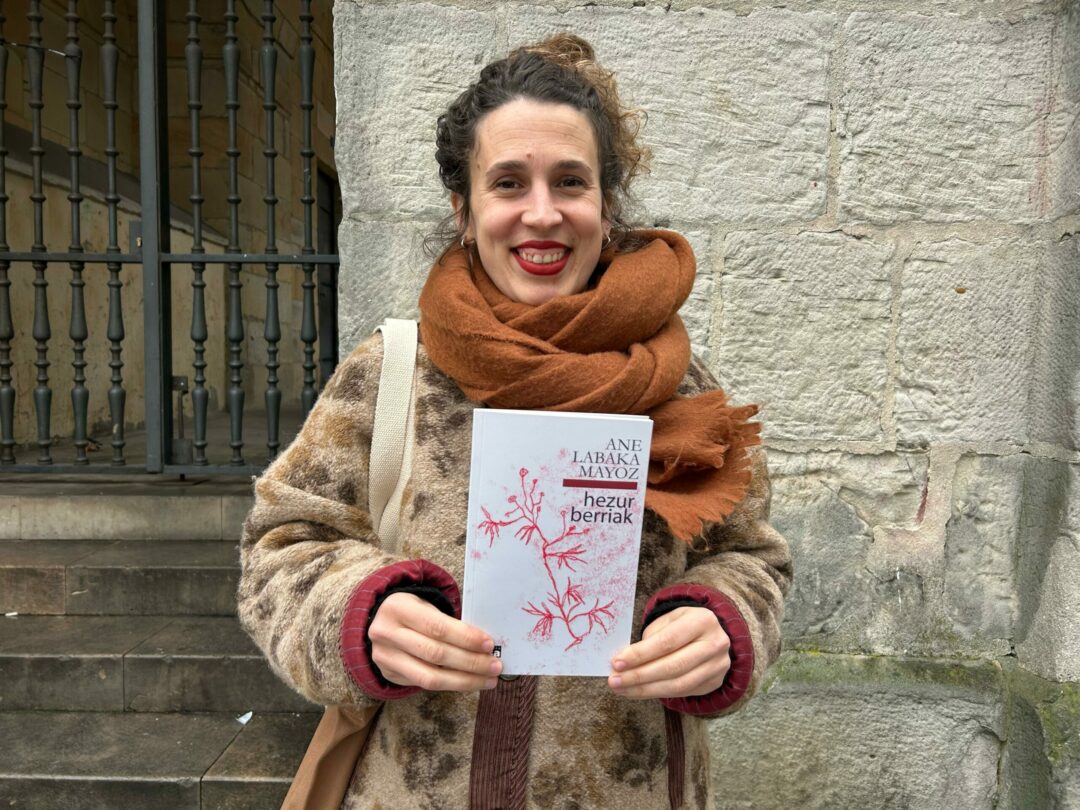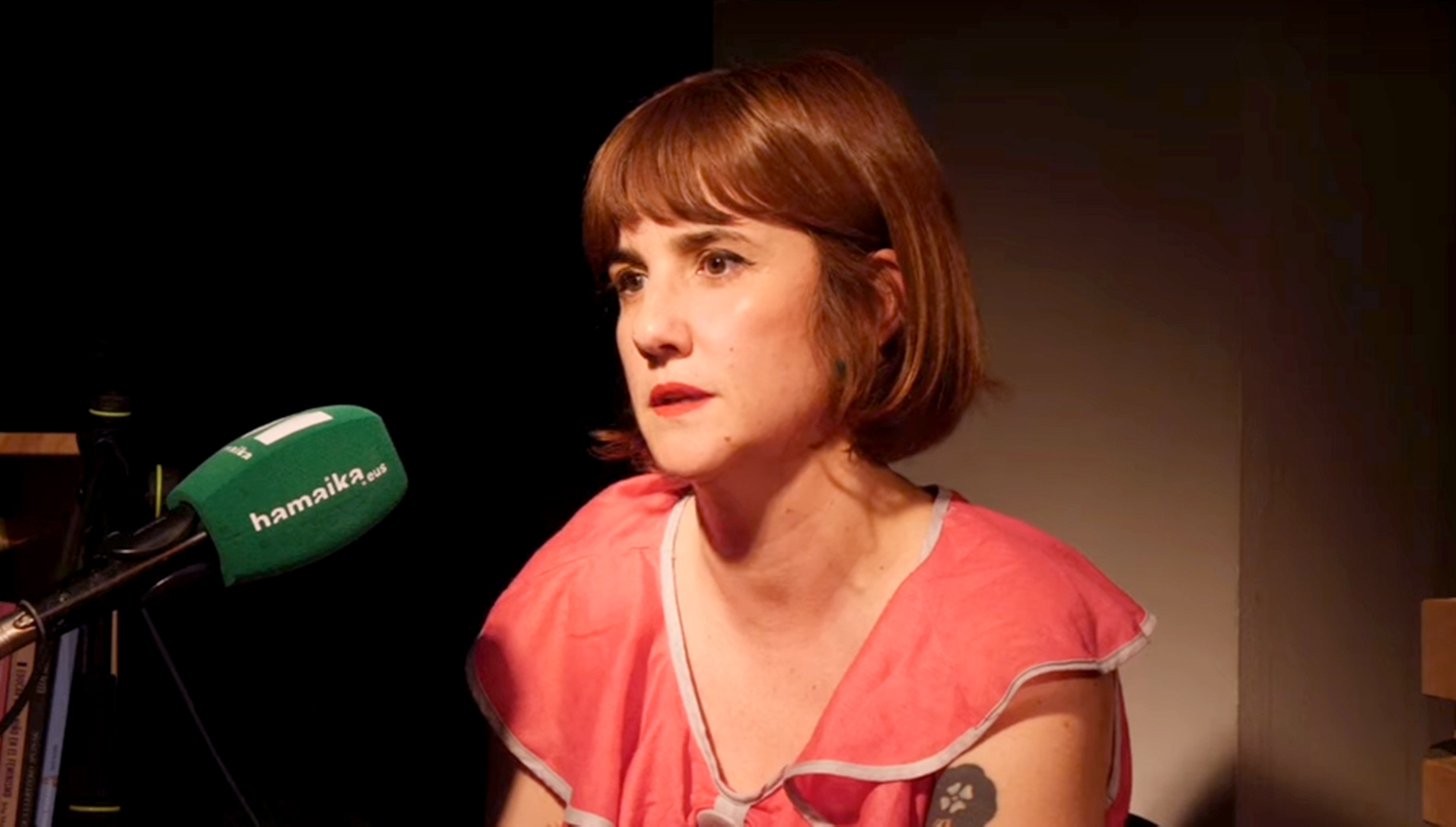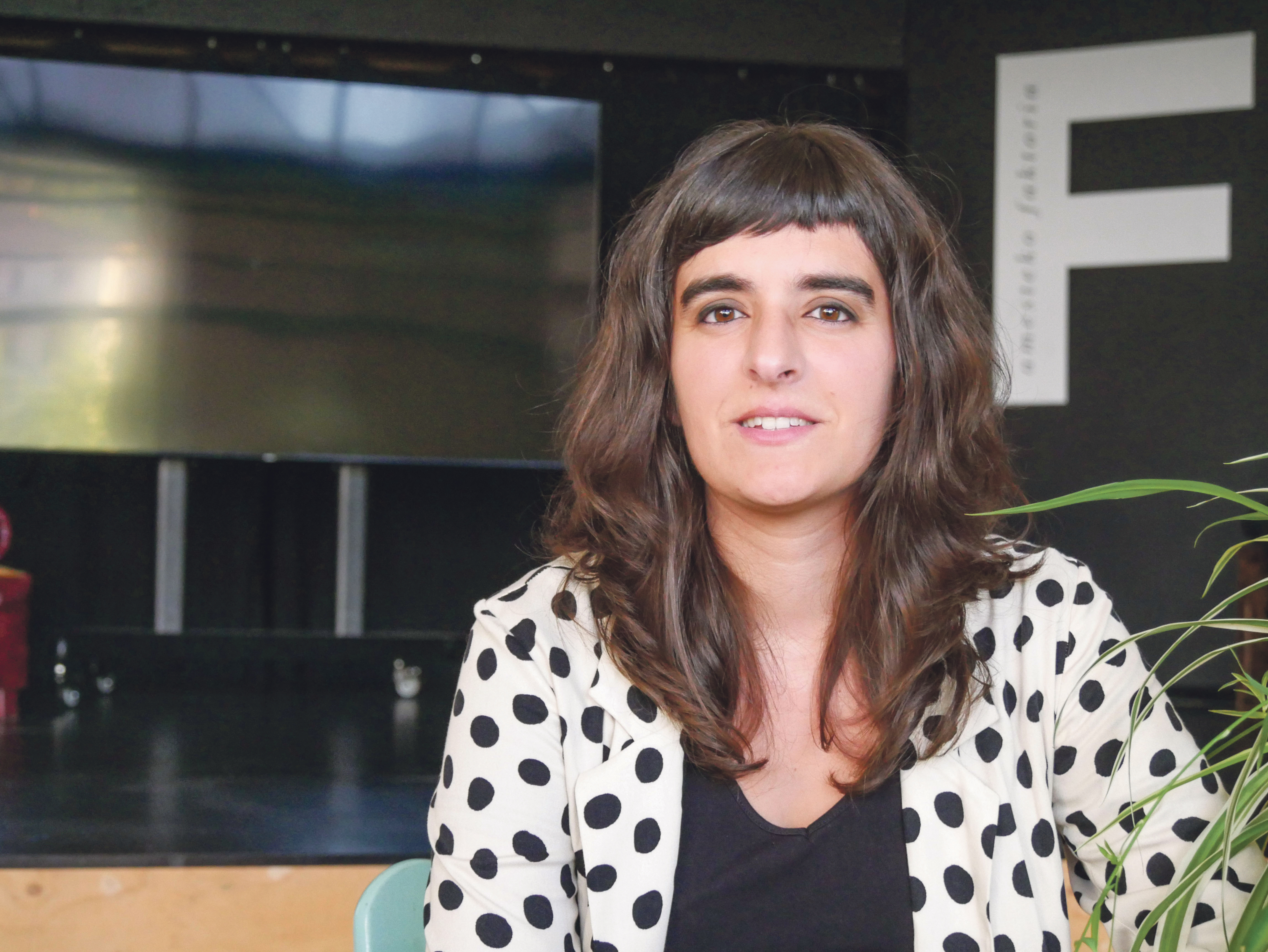“The problem is not motherhood, the problem is the system”
- The quote was not easy. The interview we did in July, we didn't have a class and we had to arrange the care of four children to see us. “The children have three months on vacation, hopefully, while we can rest a month,” says the interviewee. Diana Oliver (Madrid, 1981) is writer and journalist of the book Precarious maternity hospitals (Precarious maternity hospitals, Arpa, 2022). Her eldest daughter was born in 2013 and motherhood disrupted her life and her profession. After eight years of work in the editorial Zeta, the Madrid journalist began a new journey. Creation of Tacatá Comunicación, the first communication agency specialized in maternity and childhood. He is currently an autonomous journalist and writes mainly in the newspaper El País.

When and how was precarious maternity hospitals born?
In Ramón, the first root of the book emerged when my first daughter Mara was born. Suddenly I started asking myself a lot of questions, and I realized I didn't know how I was going to do it. I started thinking about how it was possible that women who had no paid work or lived in harsh economic contexts were mothers. From there, well, I took a course with the writer Silvia Nanclares, along with other women who write and read about motherhood, and there I began to shape that speech that I missed in the rest of the books.
What have been your referents?
No doubt, Jane Lázcar's mother knot is a Bible for me. We have it at home, read and read. Because, despite the fact that in the 1970s it was written by a relatively privileged woman, it is still in force and I think it deals perfectly with the complexity of motherhood, explaining how difficult it is for the mother to support employment, or the lack of a network.
Motherhood has historically been an uncomfortable issue for feminism. How do you see that relationship today? How do you experience it?
Polarity persists among those who despise motherhood and those who fully understand it institutionalized. And halfway, other less extreme demands are emerging that defend the value of motherhood. However, the problem is not motherhood, the problem is the system. That is, these maternity models do not correspond to this system and, consequently, these different ways of understanding motherhood are competing with each other, while the radical problem is the system.
To what extent do you think that maternal confrontation is patriarchy's ammunition?
Patriarchy and capitalism, no doubt. In our society, work is conceived as a happiness, a destiny in life, and everything related to care or art is delighted. Therefore, motherhood is also devalued. Because the system drives us, over and over again, to reduce motherhood. But also, if we don't fight, nobody will. Finally, the thing is that there is a confrontation between concepts that seem incompatible, even if they are not fundamentally so incompatible. I have always thought that there are basically more struggles that unite us than those that separate us. But the system has done and will continue to do everything in its power to win that competition.
.jpg)
In this context, she talks about the importance of “not understanding motherhood as a problem”. What exactly does it mean?
On the one hand, we draw the prejudice of the past that motherhood represents as a sacrifice. Beyond motherhood, they sell to be mothers as something that impedes meeting our goals in life, as if it were an obstacle. Finally, I understand the rupture of the feminism of the 70 cited by Adrienne Rich or Jane Lazar with the institution of motherhood. But I also think we should focus on one important idea: the system, as it is thought, continues to tread and condition motherhood in actualidad.De another way: we can only exercise motherhood if it is patriarchal and the system depends on capitalism. Forced and commodified motherhood is allowed, as being a mother cannot stop everything from turning. For the system, it can be a mother, but only if you don't notice it.
In this regard, there is an open debate on childcare permits. Now both parents are sixteen weeks old. What do you think?
It is also another victory of patriarchy. They [men] have not renounced privileges and given them more rights directly. But not only that, egalitarian leave does not take into account the physical process of pregnant women and childbirth, which significantly accentuates the inequality of rights. For more than three decades we have not seen rises in this permit and they, without historical claims like ours, have made victory available to them. They are investing a lot of resources to train, educate and convince men that they have to be cared for, while we continue to care in precariousness and dragging more poverty than them. They're not listening to the needs of mothers and babies, but the interests of the market.
Do you think there should be special leave during pregnancy?
No doubt. As important as understanding that pregnancy is not a pathological process is to be clear that pregnancy is not the same for everyone. It is therefore necessary to take care of the pregnancy and women with these needs should be entitled to such leave. In addition, the absence in the middle zone is inevitable, in addition to maternity leave. How is it possible not to understand those needs?
In the book you share your experience: you decided to cheat the system, working at home with half your children.
Yes, I say it was a precarious privilege. But basically I couldn't do it otherwise: at home we had to work both and I couldn't give up my salary. And if it wasn't because my company did a job regulation dossier, thereby getting the right to two-year unemployment, I would also take my daughter to a children's school, as many families do, well before what I wanted. But I could survive like this. In any case, the system’s failure is evident if we see a regulation dossier as a privilege, which is the only way to care for my daughter and be able to reorient the professional path…
.jpg)
Your experience has been shared by many women. How does precarious motherhood affect women?
It is a terrible shock of precariousness in our physical and mental health. As for conciliation, for example, at first we seem to be fortunate because it allows us to be with children, but they do not take care of themselves: they have needs and demands that are absolutely normal and that we must satisfy their reference adults. The care and work of children is totally impossible.
Lately the feeling is that what is understood as a respectful education generates more pressure on motherhood, right?
Of course, we have a lot of information and we know that historically standardized child abuse rates have been reduced by new educational models. But, in turn, compliance with current growth standards is often impossible. It is often impossible to guarantee activities, care and education at a level that requires respectful education, if we have to support a job and a house at the same time. It is difficult to do it in four hands, but with a partner involved, as it is impossible to reach everything. And then comes exhaustion, guilt and frustration. And I'm not going to go into what social media has in that sense.
Enter, enter…
In recent years, social networks have significantly accentuated the feeling of guilt. Not only do they perpetuate the idealization of motherhood, but they repeatedly drive the culture of desire and impossibility. Anyone wants to be like those mothers we see on social media, who have a perfect body in the week after delivery, who are happy mothers, who are educators, funny and with a perfectly clean house... And because in real life we don’t get to everything, the frustration and guilt returns. It's important to understand that behind that idealization of motherhood that we see on Instagram are some resources that we don't have most. We live in the society of happiness, with the dictatorship "if you want you can," and if you can't, you haven't tried enough.
As regards work, many women delay motherhood in the hope of economic stability. But what if stability never arrives?
Well, I've never left the wheel of precariousness and worked since I was 16. And beware, I don't intend to victimize, because it's just like that. I started working in childcare, and then I was a waitress, a salesman and working in a factory, among others. I've done everything. Today I remain on the wheel of precariousness and I can assure you that it has not been because I have not tried. But mine is no exception. My mother, for example, worked for 20 years without a contract, claiming misery for cleaning the houses. Germinated at 05:00 in the morning and returned at 20:00 in the afternoon. It was criminal, and that is the motherhood that many women have lived. Now my parents have had to go to Mom's house because they can't afford the rent. The worst thing is that he will never be entitled to retire, even though he has worked his whole life. It is clear that those who perpetuate culture “if you want you can” have never been in precariousness.
To what extent do you think it has affected you to be a journalist to be on the wheel of precariousness?
This has, of course, had a direct influence. Being a journalist is an expensive niche today. The trade is totally precarious and the media are increasingly working with self-employed workers, paying badly. I have often put accounts to calculate my time in reports or interviews, and the time has left me in four or five euros. When I worked at Telepizza, I gained more. It is unfortunate.
.jpg)
How do you value the media account of motherhood?
The media do not give her the courage she deserves, and that everything is behind maternity! There are journalists who are experts in health, politics or economics, there are masters in all these areas and there is no special training in maternity. And of course, not all journalists have the knowledge and sensitivity to address motherhood. Of course, then he often finds catastrophic headlines of childhood or education.
Lately it is fashionable to talk about the need to focus life and care. You say that “surveillance cannot be focused unless there is a fundamental shift from productive to reproductive.”
Talking about putting life and care at the center is a big marketing campaign, but the reality is it's not happening. As I said, the interests of the market and the economy prevail in exchange for the expulsion of care. Therefore, it is essential to change this logic and start working on public policies to meet the needs of dignified care. Investing in children's schools from 0 to 3 years old is important, it is an opportunity, but there are more models of care and motherhood should not be an experience that we can live by eliminating the service. Large families need time, presence and resources to be able to be enough with children and the elderly and ensure a dignified motherhood. Frustrating.
Before concluding, what do you think are the main challenges to ensure a dignified motherhood?
Firstly, it is imperative that all measures should be based on work or the economy. There are many mothers who do not have work and, for example, cannot have maternity leave. To do so, universal permissions are essential to end this inequality. In addition, care, reproductive processes and growth must be valued. I insist, motherhood is not a problem, motherhood is not a stick on the wheel, but quite the opposite. The system prevents motherhood from living with freedom and dignity. The system causes us guilt and suffering. The system maintains the structures that cause precariousness and the system feeds inequality. We cannot put motherhood into this system under pressure as a piece that doesn't come in, we have to break the puzzle and create a new structure.
Toledo, 1272-1280. Alfonso X of Castile gathered 427 monomedical songs dedicated to the Virgin. The Cantigas de Santa Maria constitute one of the most important musical and literary collections of the Middle Ages, but being decorated with the miniature cantiga, these... [+]
When death and the corner of the perinatal mourning occurred in the Hernani cemetery, I received the first blow. So I started thinking about where that lost child was. There I left him to take care of others. Why didn't I do something? Time goes fast and immersed in day to day is... [+]
























